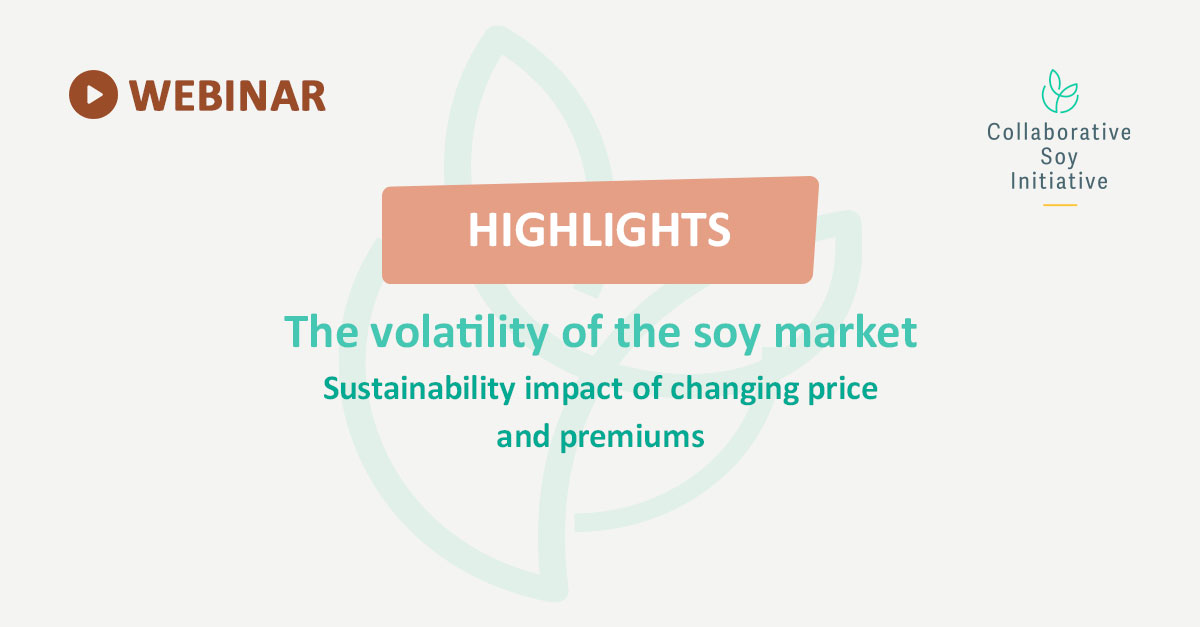Webinar highlights: The volatility of the soy market; sustainability impact of changing prices and premiums

The webinar session, held on June 2nd, was organized by ProTerra Foundation under the umbrella of the Collaborative Soy Initiative[1] (CSI) and focused on volatility of the soy market and the sustainability impact of changing prices and premiums.
Heleen van den Hombergh, CSI Coordinator, initiated the session, emphasizing CSI’s vision of 100 % conversion free sustainable soy production and market uptake on the global scale, sharing information and creating synergies. CSI brings stakeholders together via “Meta Meetings”, working groups, and informative webinars, such as this one, the topics of which were:
- Matching requirements and necessary incentives for producers dealing with soy volatility.
- How does this volatility affect sustainability and how to overcome this hurdle?
Contextualizing the current world’s situation, Emese van Maanen stated that the goal of the session was to explain how and why price volatility and the lack of clear commitments damage sustainability and why long-term commitments are crucial to build up sustainable supply chains and relationships globally.
Afterwards, Gert van der Bijl, EU Policy Advisor, Solidaridad Europe[2], presented their experience working with soy supply chains. He covered the following topics:
- Concept of volatility and why it is a problem for sustainability.
- Soy prices and premiums for sustainable production.
- The way forward: bringing together farmers and key actors, building long-term partnerships: “Things will only change if farmers are convinced that sustainable practices are in their own best interest”.
Ricardo Arioli Silva, Director for International Affairs of Soja Livre[3], Brazil, described the current situation of soybean production in Brazil, the meaning of preservation areas and challenges non-GM farmers have to face.
Frank Gauger, Agraria[4] European representative, represented the business and spoke about sustainable non-GMO soybean agreements, what is needed to improve planning and to increase sustainable production.
Lastly, Will Schreiber, Retail Soy Group[5], represented by 3Keel, focused on consumer demand. Pressure is increasing lately, as consumers become more conscious of the connections between soy and the food they eat, especially regarding deforestation. The end of the supply chain experiences the most pressure for change, but it is also the least capable of directly affecting production. It turns out that certification is still the best solution to evidence deforestation-free sourcing.
We would like to thank all presenters for this learning opportunity and for providing such useful information.
The recording is available HERE and the presentation HERE.
As this interesting topic raised numerous questions, we are planning to organise a follow up meeting on July 1st. Stay tuned for more details.